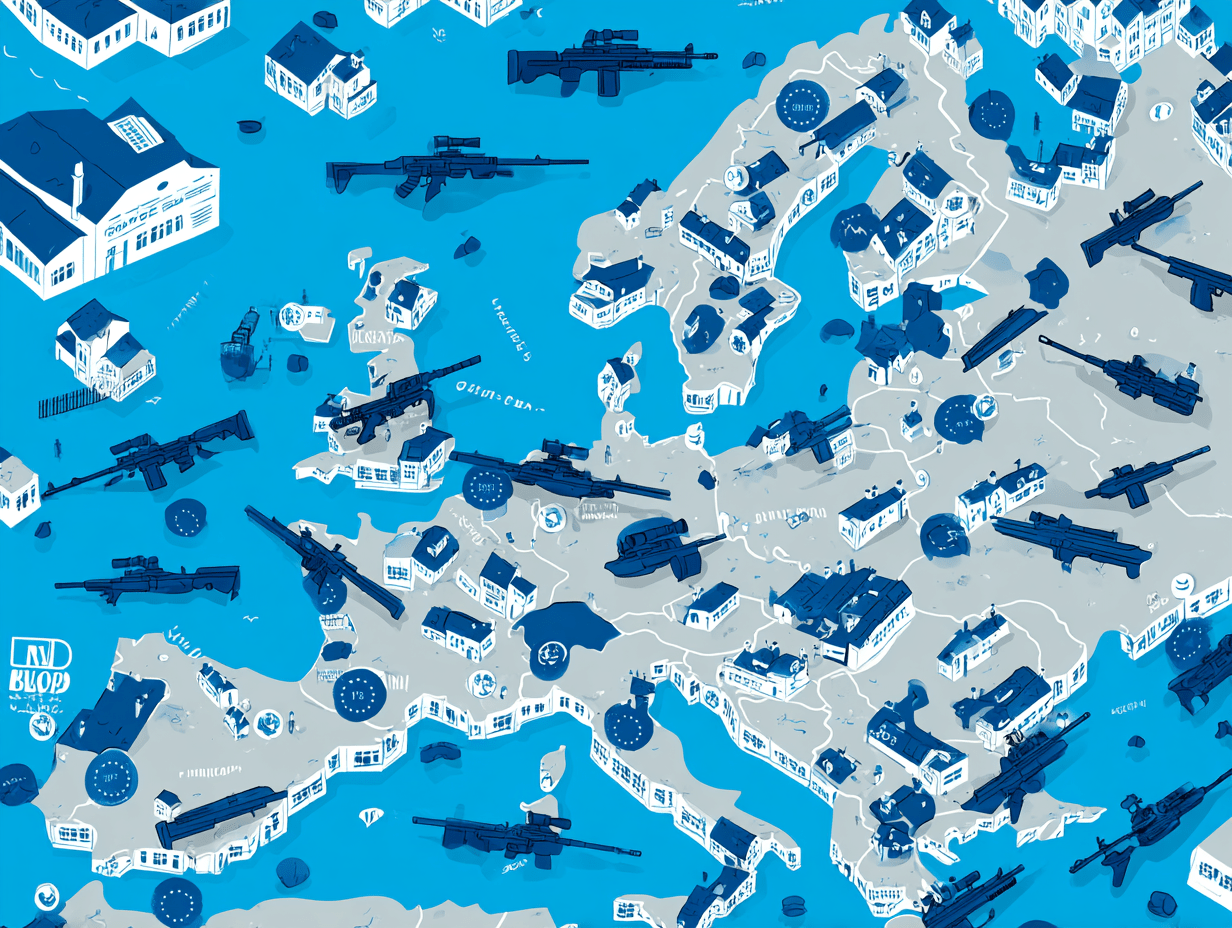What the European Investment Bank Can Do for Europe’s Common Defence
As the EU confronts a harsher geopolitical reality, the bloc’s development bank is being pushed towards a new, riskier role. A commentary by Rosalba Famà

At this year’s Rimini Meeting, former European Central Bank president Mario Draghi issued a stark warning: 2025 would be remembered as the year the European Union’s long-held illusion — that a single market of 450 million consumers automatically translated into geopolitical power — finally evaporated.
In a rapidly shifting global environment, where the use of force has tragically re-emerged as a tool of international politics, the EU has unveiled a strategy for its own rearmament. It has since been formalised as the European Defence White Paper: Ready for 2030, a plan designed to boost defence production within Europe and strengthen both preparedness and deterrence.
Responding to mounting pressure from the United States to rebalance financial contributions within NATO, the EU has embarked on a path toward higher defence spending. Yet contributions still vary widely: Ireland allocates less than 0.25% of GDP to defence, while Poland spends close to 4%.
The Niinistö Report, Strengthening Europe’s Civilian and Military Readiness, underlines the uncomfortable reality that the EU is not currently capable of defending itself autonomously in the event of a military attack — a structural vulnerability with serious strategic implications.
The White Paper estimates defence investment needs at €800 billion by 2030. It outlines several ways to mobilise such resources:
– granting member states greater flexibility through exemptions from EU fiscal rules;
– redirecting certain cohesion funds;
– creating a new common European debt instrument, SAFE;
– increasing defence allocations in the next EU multiannual budget.
In addition, the plan tasks the European Investment Bank (EIB) with providing €2 billion annually in defence-related financing.
Founded in 1957 under the Treaty of Rome, the EIB is the world’s first regional development bank and remains owned by EU member states according to their economic weight. It serves as the Union’s financial arm, offering loans, guarantees, and technical assistance in support of EU strategic priorities.
Although the European Commission began issuing debt in 2020 to finance the Recovery and Resilience Facility and support for Ukraine — amounting to roughly €900 billion — the EIB remains the only EU institution explicitly authorised by the Treaties to borrow on financial markets.
Article 308 of the Treaty on the Functioning of the European Union charges the Bank with supporting the “balanced and steady development of the internal market.”
In recent years, the EIB has aligned closely with the Green Deal, committing to mobilise € 1 trillion for the green transition between 2020 and 2030 and becoming the world’s first issuer of green bonds.
But Russia’s war of aggression on Europe’s borders has prompted a gradual shift in its mandate.
The Bank has expanded its eligibility framework — which previously excluded defence — and added a new cross-cutting objective focused on security.
This adjustment reflects a broader transformation within the EU, which is increasingly relying on financial instruments, not only regulation, to confront new geopolitical challenges.
Within this evolving landscape, the EIB is expected to play a central role in reinforcing Europe’s strategic autonomy.
The key question will be how the Bank preserves the financial strength underpinning its triple-A rating while gradually engaging in higher-risk portfolios.
A first version of this article was published in the Italian daily Il Sole 24 Ore
IEP@BU does not express opinions of its own. The opinions expressed in this publication are those of the authors. Any errors or omissions are the responsibility of the authors.
